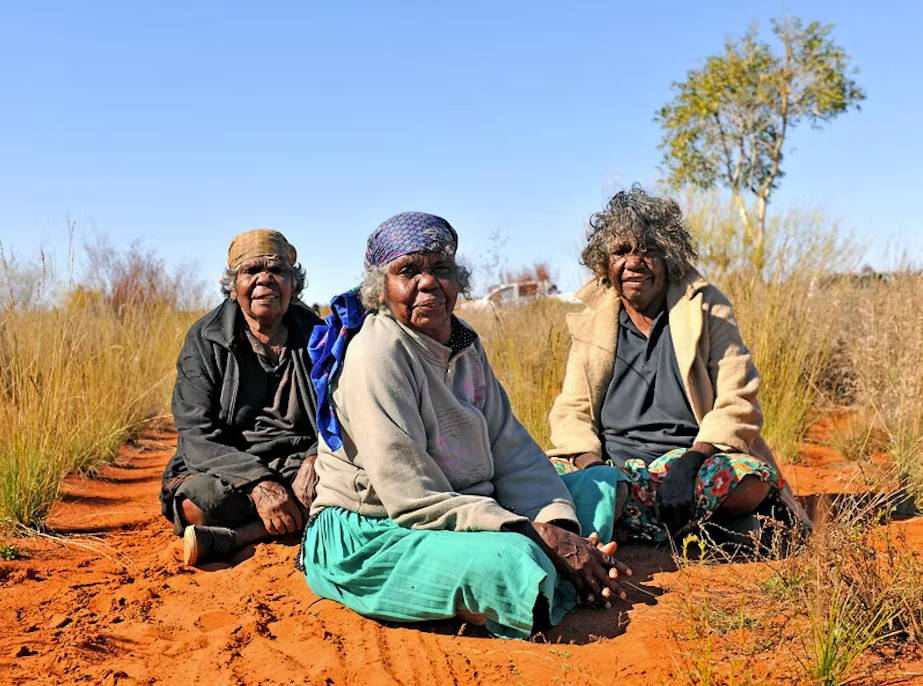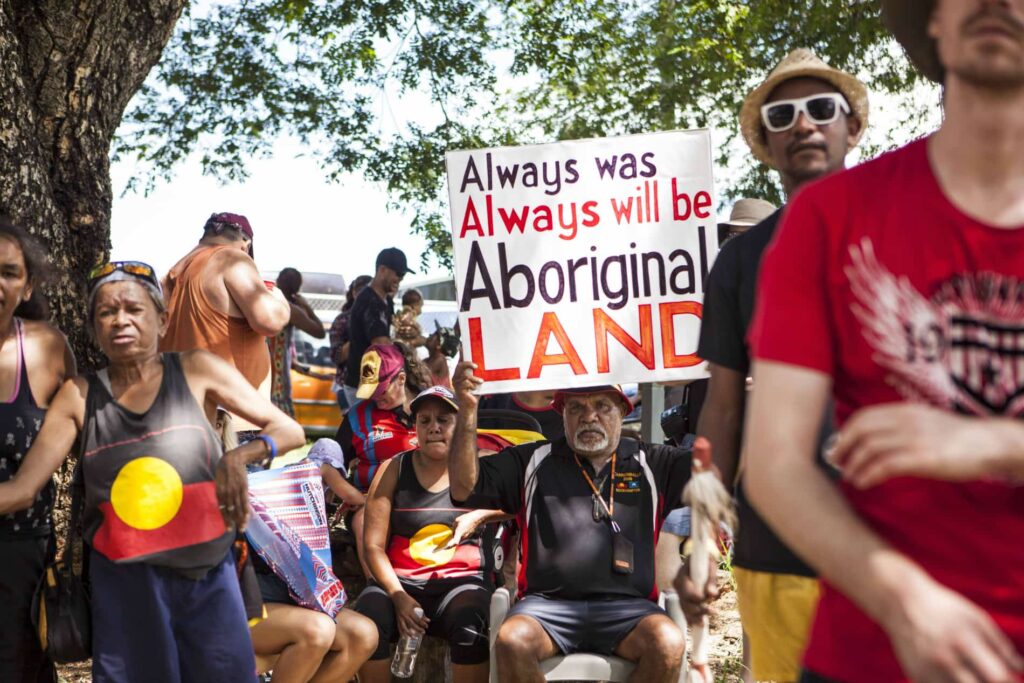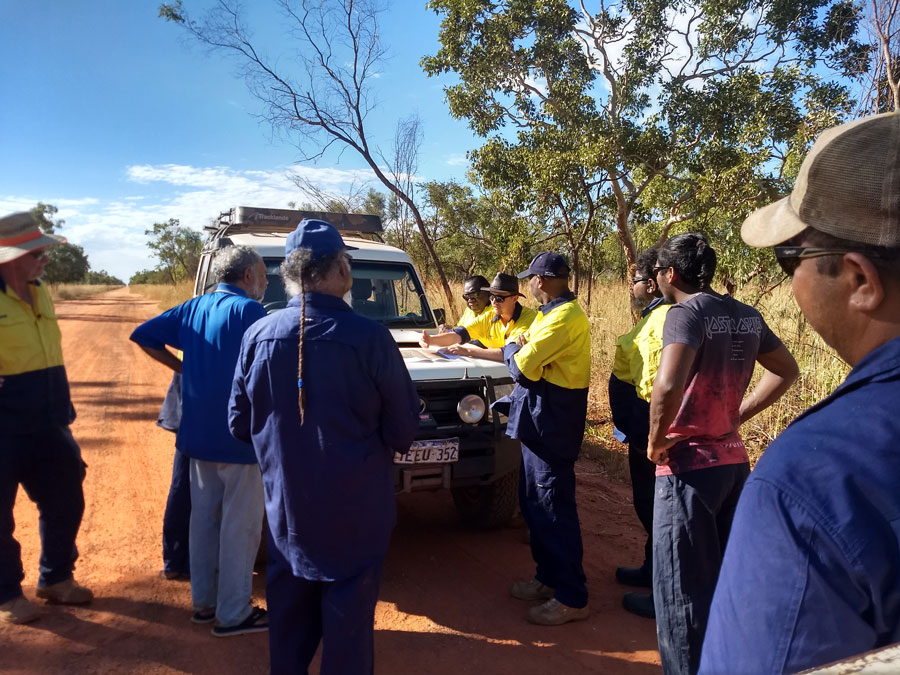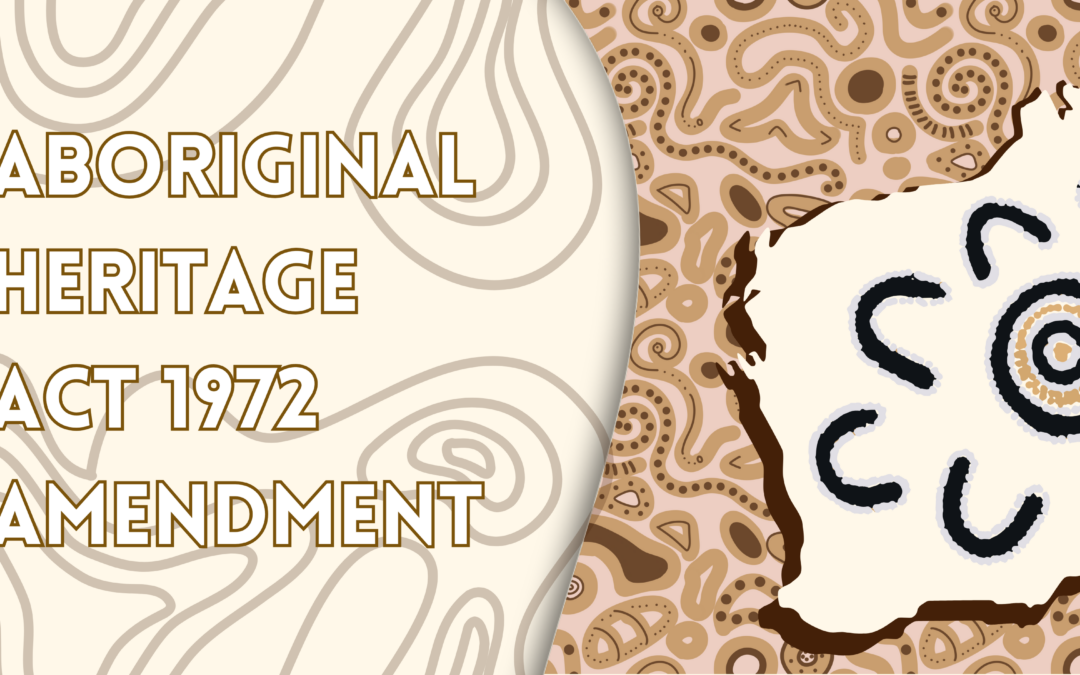Amendment to the Aboriginal Heritage Act 1972 (WA) (AH Act 1972) came into effect on 15 November 2023. The amended AH Act 1972 replaces the previous and short lived Aboriginal Cultural Heritage Act 2021 (WA) (ACH Act 2021) introduced by the Western Australian government with the aim of preventing another Juukan Gorge incident (ABC News, 2021). The ACH Act 2021 was only in effect for 5 weeks before it was repeal on the 8th August 2023. The amended AH Act 1972 is designed to provide enhanced protection and manage for Aboriginal heritage in Western Australia (Government of Western Australia, 2023).
Why was the AH Act 1972 amended?
There was significant public and political backlash received by the Western Australian government regarding the ACH Act 2021. This was mainly due some of the requirements the ACH Act 2021 placed on proponents and landowners (ABC News, 2023). In response to this, the government decided to repeal the ACH Act 2021 and revert back to the previously repealed AH Act 1972 with some amendments made. These amendments are aimed at strengthening the existing legislative protection of Aboriginal cultural heritage and expanding the role and participation of Aboriginal people in this legal process.

Who needs to be aware of the amendments in an organisation?
The people who will need to know about the amendments to the AH Act 1972 are heritage and communities teams, internal and external legal counsel, environment and sustainability teams and external affairs.
What are the key amendments to the AH Act 1972?
Right of Review
Native Title parties now have a right of review for all s18 decisions. This will occur via the State Administrative Tribunal (SAT), with clear timeframes for the review process and an ability for the Premier to call-in an application to SAT for issues of ‘State or regional significance’ acting in the interests of all Western Australians. Previously, the right of review was only available to proponents and not to Native Title parties (DPLH, 2023). Clauses in Mining or Land use agreements which prevent or restrict Native Title parties from objecting to or being heard in proceedings in relation to s18 consent applications (so called ‘gag clauses’) have been voided (TG Law, 2023). Consistent and thorough consultation with Native Title parties and other Aboriginal People is required prior to the lodgement of a s18 application; this is like to remove the need for SAT reviews.

A New Committee
The Aboriginal Cultural Heritage Committee (Committee) takes on the role of the former Aboriginal Cultural Material Committee to make recommendations on S18 notices to the Minister. The new Committee is skills-based with majority Aboriginal members and has male and female Aboriginal co-Chairs (DPLH, 2023).
Changes to s18
When a s18 consent has been given by the Minister for Aboriginal Affairs (Minister), the landowner must notify the Minister of any new information about an Aboriginal site and the Minister must reconsider the original consent. This is a key amendment to help prevent another Juukan Gorge incident (DPLH, 2023). Proponents should be mindful that s18 consents can be suspended or cancelled, so ensuring that thorough cultural heritage surveys, and assessments are undertaken and that Aboriginal People have been consulted and engage in the application process is critical with prior to seeking a s18 consent.
From lodgement of a complete s18 notice, the Committee has 70 days within which it is required to make its recommendation to the Minister. There is an option for a 30 day timeframe extension and the Minister must make a decision within 28 days, or as soon as practicable, after receiving the Committee’s recommendation. Any requests for further information in relation to an application will ‘stop-the-clock’ on these timeframes (DPLH, 2023).
Changes in Land Ownership
Where there is a change of ownership of land that is the subject of a s18 consent, the consent can now be transferred and the new owner is required to notify the Minister within 28 days to avoid a fine (DPLH, 2023).

What about approvals that were granted under the ACH Act 2021?
Permits or management plans that were approved or authorised under the ACH Act 2021 automatically transition to a s18 consent. Some activities carried out under the ACH Act 2021 remain valid, including activities that were considered exempt, did not require approval or where no risk of harm had been assessed, provided they have been substantially commenced prior to the repeal of the ACH Act 2021 on 15 November 2023 (DPLH, 2023).
Implications of the AH Act 1972 Amendments
There is arguably a significant gap remaining between cultural heritage protection laws in WA and best practice cultural heritage standards even with the amended AH Act 1972 coming into effect (Allens Linklaters, 2023). From this point of view, proponents will need to be mindful that policy statements and commitments to apply best practice standards are unlikely to be fulfilled by complying with the AH Act 1972 processes alone (Allens Linklaters, 2023).

Key potential implications of the return to the AH Act 1972 for proponents and businesses are:
- increased pressure to commit to free, prior and informed consent in relation to engagement with Native Title parties and cultural heritage management practices (Allens Linklaters, 2023);
- continued scrutiny of the on-ground implementation of businesses’ commitments in relation to Native Title parties and cultural heritage management practices;
- risk of exposure to claims of ‘bluewashing’, stakeholder activism (including shareholder action) and reputational damage if there is any perceived failure to implement cultural heritage commitments. This applies to proponents and to businesses linked to a project (such as financiers and institutional investors) (Allens Linklaters, 2023);
- where the expectations of Native Title parties are not met, there may be an increased risk of s18 reviews being brought by or on behalf of Native Title parties, both under the new SAT mechanism in the AH Act 1972 and outside of the AH Act 1972 framework (such as under the Aboriginal and Torres Strait Islander Heritage Protection Act 1984 (Cth) or non-judicial mechanisms (i.e complaints to United Nations bodies or to the Australian Organisation for Economic Co-operation and Development) (Allens Linklaters, 2023).
What’s next for proponents and businesses?
While there will be a return to the familiar framework for cultural heritage management in WA proponents and businesses will need to:
- review existing company policies and commitments regarding engagement with Native Title parties and cultural heritage and ensure these commitments are understood in context to the amended AH Act 1972;
- be mindful of the review process when seeking s18 consents and seek to consult thoroughly with Native Title parties. Projects should be amended where possible to consider the Native Title party’s concern to avoid the possibility of having a s 18 consent reviewed (Maddocks, 2023).
- ensure that quality Aboriginal heritage surveys and assessments are undertaken prior to seeking a s18 consent. This is imperative to mitigate this risk regarding s18’s being suspended on cancelled if the Minister receives new information about Aboriginal cultural heritage (Maddocks, 2023). consider the implications of the legislative change from a project permitting and scheduling perspective, including implications for agreements with Native Title parties and any environmental impact assessment processes currently underway (Allens Linklaters, 2023) and
- ensure robust consultation, human rights due diligence and related governance and risk management processes are in place to avoid human rights risks relating to Native Title parties and cultural heritage (Allens Linklaters, 2023).

If your organisation needs assistance with understanding or complying with the amended AH Act 1972, please contact us by email at enquiries@integratesustainability.com.au or call us on 08 9468 0338.
Reference
ABC News. (2021, December 16). WA Aboriginal heritage law passes but concerns remain it won’t prevent another Juukan Gorge. Retrieved from https://www.abc.net.au/news/2021-12-15/aboriginal-heritage-law-aimed-at-stopping-another-juukan-passes/100701120
ABC News. (2023, September 13). WA government releases amendments to revised Aboriginal Cultural Heritage Act for consultation. Retrieved from https://www.abc.net.au/news/2023-09-13/wa-government-aboriginal-cultural-heritage-act-replacement/102852934
Allens Linklaters. (2023, August 16). Cultural heritage legislative and ‘best practice’ gap returns. Retrieved from Insight: https://www.allens.com.au/insights-news/insights/2023/08/Repeal-of-the-Aboriginal-Cultural-Heritage-Act-2021/#anchor2
DMIRS. (2023, October). Aboriginal Heritage Survey Assistance Program. Retrieved from www.dmp.wa.gov.au/Documents/Minerals/Aboriginal-HSAP-guideline.pdf
DPLH. (2023, November). Aboriginal Heritage Legislation. FAQS. WA.
Government of Western Australia. (2023, November 15). Aboriginal Heritage laws. Retrieved from wa.gov.au: https://www.wa.gov.au/organisation/department-of-planning-lands-and-heritage/aboriginal-heritage-laws
Maddocks. (2023, September 1). Round Two: the repeal of the Western Australian. Retrieved from Legal Insights: https://www.maddocks.com.au/insights/round-two-the-repeal-of-the-western-australian-aboriginal-cultural-heritage-act-2021
TG Law. (2023, November 15). WA Aboriginal Cultural Heritage Act 2021 repealed – what happens now. Retrieved from https://www.tglaw.com.au/insights/wa-aboriginal-cultural-heritage-act-2021-repealed-what-happens-now

